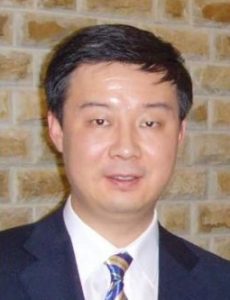
Professor Vang HAYDUNG Professor, Doctor of Political Science, “Pan-Turkism aspirations of Turkey. Implications for China ”
07/28/2020

Since coming to power in late 2002, the Turkish Justice and Development Party led by Recep Tayyip Erdogan has embarked on an ambitious transformation of Turkey. One of Erdogan’s strategies was to restore Turkey’s position as the leader of the Sunni Muslim world and regional hegemon in the Middle East.
Currently, Turkey is actively involved in the Syrian and Libyan conflicts, has established a military base in Qatar, Sudan and is in fierce rivalry with Saudi Arabia, Egypt and the United Arab Emirates.
BETWEEN ONE OF THE MAIN DIRECTIONS OF Turkey’s FOREIGN POLICY is the South Caucasus and Central Asia, where Turkey seeks to strengthen its influence among the newly independent Turkic-speaking states.
Even before Erdogan came to power, Turkey was quite active in the region, establishing strategic relations with Azerbaijan and expanding economic ties with Kazakhstan, Kyrgyzstan, Turkmenistan and Uzbekistan. Erdogan continued this policy and, interestingly, the United States fully supported Turkey’s invasion of the South Caucasus and Central Asia, considering the growing influence of Turkey to be useful in its strategy to use Turkey against China.
Azerbaijan is Turkey’s strategic partner in the South Caucasus. They share ethnic and linguistic similarities, which have been highlighted by the famous slogan of former Azerbaijani President Heydar Aliyev, “One nation, two states.”
However, the strategic relationship between Ankara and Baku has much broader implications. In 2009, both states were at the heart of the establishment of the Cooperation Council of Turkic-speaking States, an intergovernmental organization uniting Azerbaijan, Turkey, Kazakhstan, Kyrgyzstan and Uzbekistan as full members and Hungary as an observer state.
This organization is the embodiment of Turkey’s aspiration to gain strategic influence in Central Asia and to unite the capabilities of the Turkic-speaking states.
Recently, the United States has been actively using the Uighur issue as an instrument of pressure on China. On June 17, 2020, President Trump signed into law the 2020 Uyghur Human Rights Policy Act, which authorizes US sanctions against Chinese officials.
On June 30, the US Commission on International Religious Freedom declared that the Chinese government’s measures to control Uyghurs and other Muslims could meet the legal criteria for genocide under international law.
THE CHINESE GOVERNMENT OFFICIALLY DENIES all these baseless accusations, believes that this criticism from the United States does not correspond to the facts, and is gross interference in the internal affairs of a sovereign state.
In this context, the United States is ready to use the growing influence of Turkey in Central Asia and in the Council of Turkic-speaking States to provoke anti-Chinese sentiment in Central Asia and create instability in Xinjiang.
But Turkey has no common borders with the rest of the Turkic-speaking countries, and Armenia and the Nagorno-Karabakh region hinder this.
Turkey currently has approximately 10 km of land border with the Nakhichevan Autonomous Republic, an Azerbaijani exclave surrounded by Armenia and Iran.
Meanwhile, Armenia and the Nagorno-Karabakh region separate Nakhichevan from Azerbaijan by about 180 km of territory (45 km of the territory of Armenia and 135 km of the territory of Nagorno-Karabakh).
It is not surprising that the first summit of the Cooperation Council of Turkic-speaking states was organized in Nakhichevan, and very often the Azerbaijani leadership speaks of Armenia and Nagorno-Karabakh as the only obstacles to the unification of the Turkish world from Turkey to the borders of China.
In this context, the recent escalation along the Armenia-Azerbaijan state border, which began on July 12, should be viewed. Literally in the first hours of the armed escalation on the border, Turkish President Recep Tayyip Erdogan contacted his Azerbaijani counterpart Ilham Aliyev, and Defense Minister Hulusi Akar – with Azerbaijani Defense Minister Zakir Hasanov.
After that, Akar specified that the Turkish armed forces are ready to help Azerbaijan in accordance with the principle of “one nation, two states”.
On July 16, a military delegation of Azerbaijan headed by Deputy Defense Minister of Azerbaijan Lieutenant General Ramiz Tairov arrived in Ankara for consultations.
Receiving delegates from Baku, Turkish Defense Minister Hulusi Akar promised to provide Azerbaijan with all the necessary assistance.
On July 17, in Ankara, the Minister of Defense Industry of Turkey Ismail Damir received Ramiz Tairov and the commander of the Separate Combined Arms Army (stationed in the Azerbaijani enclave of Nakhichevan) Kyaram Mustafayev.
The TURKISH MINISTER noted that the military industry of Turkey – from unmanned aerial vehicles, missiles, electronic systems and other technologies – is all at the disposal of Azerbaijan.
In addition to transferring new weapons systems to Azerbaijan, Turkey is ready to modernize existing models and produce them jointly.
The growing military cooperation between Turkey and Azerbaijan not only poses a threat to Armenia, but, by and large, complicates the situation in the South Caucasus.
Armenia is geographically separating Turkey from the rest of the Turkic-speaking countries, has a special place in ensuring stability and security in Central Asia and Xinjiang Autonomous Region of China.
Otherwise, Turkey will create a single zone of influence, stretching from Turkey through Central Asia to the borders of western China.
This poses a threat to China’s national interests, as the US will use this zone as a tool to incite instability in Xinjiang.
Thus, the national interests of China and Armenia coincide in opposing Turkey’s pan-Turkic aspirations in the South Caucasus and Central Asia.
Wang HAIDONG, Professor, Doctor of Political Science, Deputy Director of the Central Asia Center, East China University of Teachers
English translation – LOUSAVOR AVEDIS:
